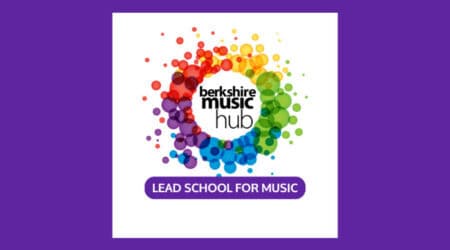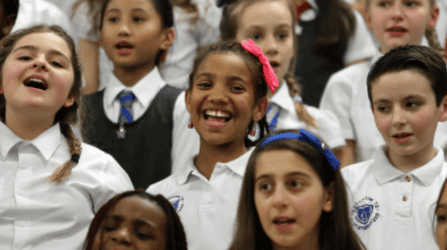The Transformative Power of Community in Primary Music Education: How School-Community Collaborations Spark Creativity and Confidence
Primary music education is often mistakenly seen as something confined to our classroom or hall walls. However, when we open the doors to the wider community, we uncover a world of possibilities where students not only learn music in a meaningful way—but also see it as a powerful tool for connection and expression.
School-Community Collaborations: A Game-Changer
Over the past year and a half, the impact of community involvement on our young music learners at Cippenham School has been incredible. From school music festivals and concerts that make singing assemblies, band, and choir practices memorable moments, to collaborations with local musicians that connect classroom learning with real-world music experiences—every aspect of our music curriculum has been transformed by community engagement. When we work together, music learning becomes so much more than just notes on a page or weekly snapshots—it becomes a shared journey of growth and expression. Communities—including those within our school walls, parents and guardians, local residents, musicians, and institutions—can all have a positive impact on making our children’s music learning a truly meaningful experience.
In this blog post, I will share how community engagement can enhance music learning for children and suggest small steps for making community collaboration accessible to everyone.
Ways Community Engagement Supercharges Music Learning for Children
Cippenham Junior Choir performing at Windmill Care Home
Music is for Everyone
Community engagement shows children that music is for everyone. When they see music as something that everyone can share, it fosters inclusivity and a deeper connection to their own musical expression. As a result, primary school music need not be confined to classrooms or halls; it can take place in chocolate factories, car showrooms, care homes, and even libraries. This creates opportunities for workers and residents within the wider community to listen to and engage with the music of our learners, reinforcing the idea that their music learning truly matters. A perfect example of this was our Junior Choir’s visit to the Windmill Care Home in Slough. Daisy and Kanita, two of our choir members, reflected on their experience performing there:
Music is a way to feel part of a community. It’s about showing people we care and making them happy. They (the residents) love to listen, dance, and join in.
– Daisy and Kanita (Year 5 band and Choir members)
This visit not only brought joy to the care home residents but also reinforced for our choir children the importance of music in connecting people beyond the classroom.
Community Validates Children’s Musical Growth
“When a child’s musical achievements are recognized by their community, it not only validates their learning but also nurtures future aspirations for making music. School concerts and festivals, where parents, teachers, and peers are invited as guests, offer invaluable opportunities for this. Recently, our school bands participated in Slough Music Services’ Primary Battle of the Bands, and the pride shared by a community of parents, teachers, and peers from other schools was palpable. The electric atmosphere of this event truly inspired Ziyah, a Year 6 band member, who shared:
‘I really liked taking part. It helped me get over my stage fright, and it was a great way to make new friends. It encouraged me to continue with music in secondary school, as I want to take part in Battle of the Bands next year.’
The supportive community environment at this event has inspired Ziyah to pursue music beyond primary school and practice with her current band in Year 6 with even greater enthusiasm.
Our Year 5 School band – The Screaming Falcons
The Community’s Musical Landscape: Expanding Music Learning
Tabla lessons at Cippenham School
Not only does community involvement offer children opportunities to explore the musical landscape of their peers within the community, but it also provides chances to experience diverse musical styles and traditions. Our partnership with local musicians who lead weekly Steelpan and Tabla workshops for Year 6 students, encapsulates this. These workshops expose children to different musical styles and cultures, sparking curiosity and passion. The students’ engagement is evident in their thoughtful questions and active participation, which helps them connect classroom music lessons to real-world experiences. Aaliyah in Year 6 reflects on her steelpan lessons:
“When you play Steel Pans, you’re taught things you wouldn’t normally experience at a primary school. It teaches me that there are lots of different instruments that many people don’t get to hear or play, and I feel happy that I get to play Steel Pans. It feels good to play different music.”
Steelpan lessons at Cippenham School
Small steps to begin Actioning Community Engagement after This Blog
Begin by harnessing your school’s community
- Small concerts in classrooms or assemblies, where students perform for peers, inspire confidence and encourage participation in music lessons and other music related extracurricular activities.
- Learning age appropriate music of Local artists, exploring the musical diversity of the community
- Smaller gatherings, like singing assemblies focused on learning song chorus’ in another language. This again creates opportunities for children to explore the musical diversity of their community and could be a team effort involving all staff members.
Conclusion
Through school-community collaborations, we help children forge deeper connections to music, making their learning meaningful and enabling them to thrive as musicians and individuals. By embracing school-community collaboration, we ensure children not only grow musically but also build lasting confidence and creativity. Let’s work together to make music education an unforgettable journey—one that resonates far beyond the classroom.
Written by Cara Pennington
Subject leader of Music
Cippenham School
Share this article:





